Winton House, The Street, Charmouth


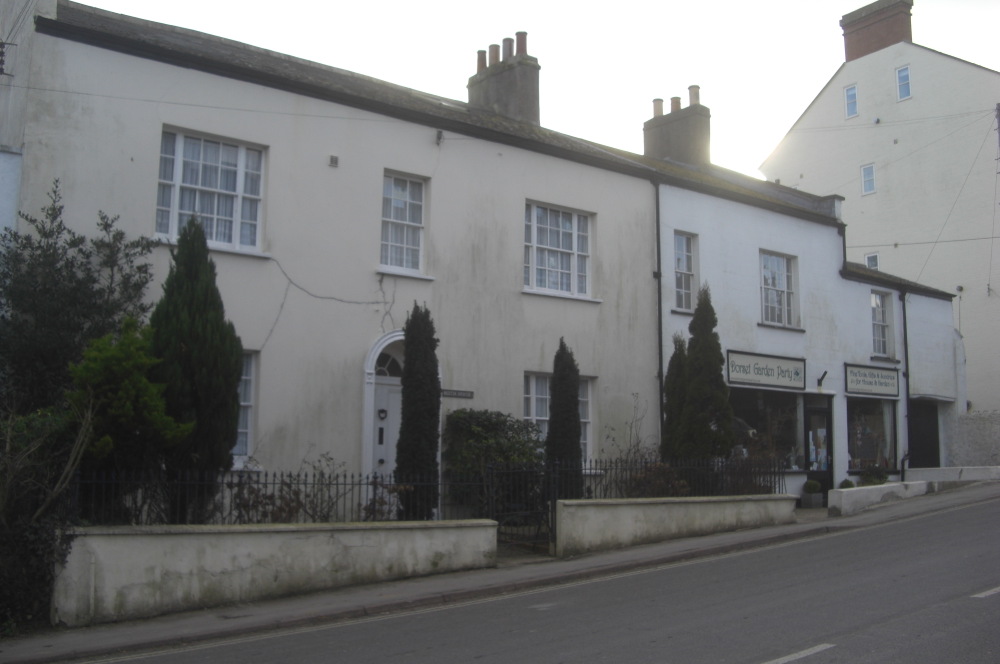



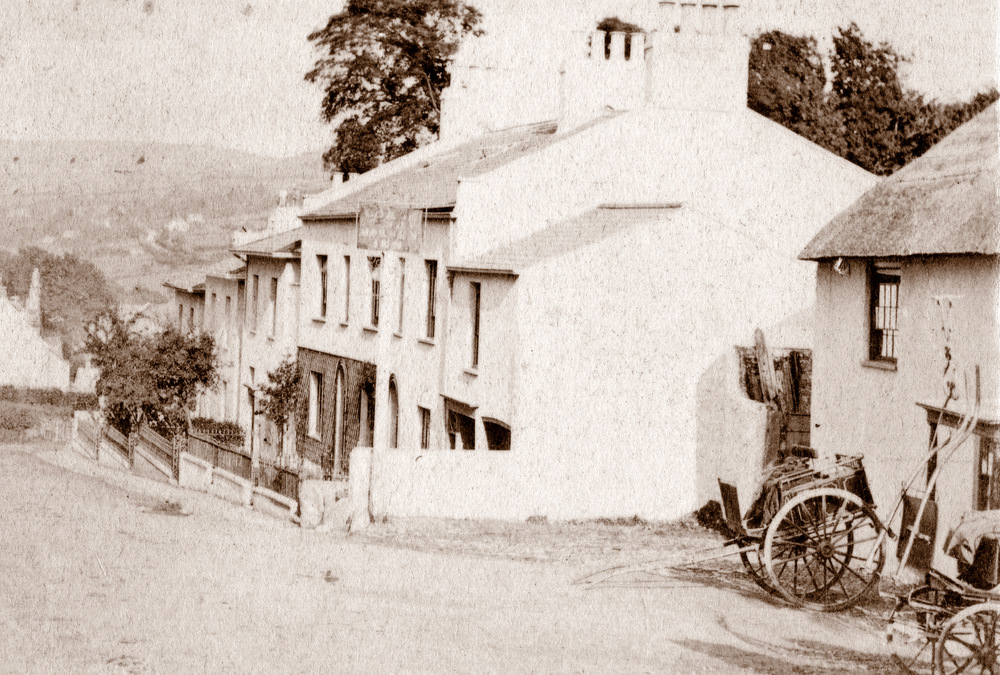
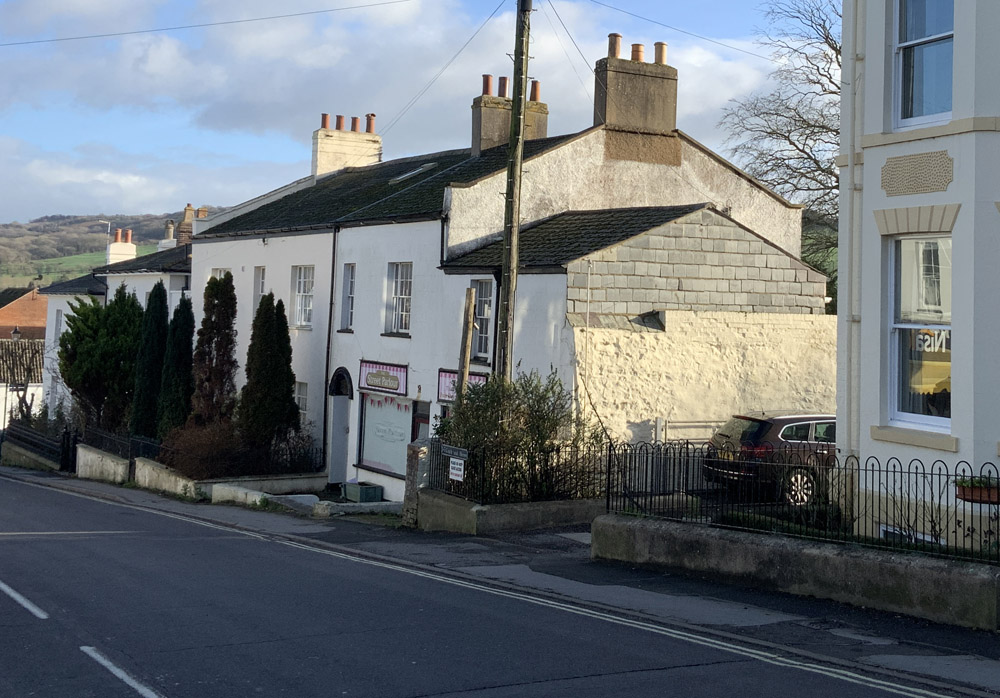
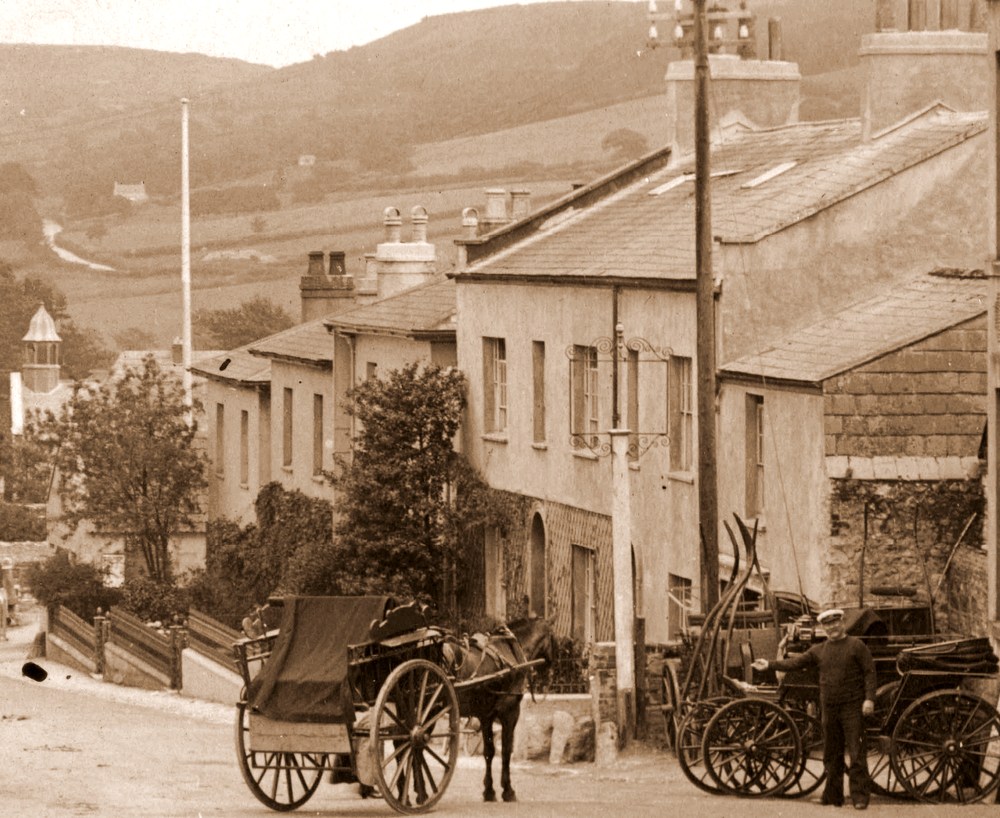
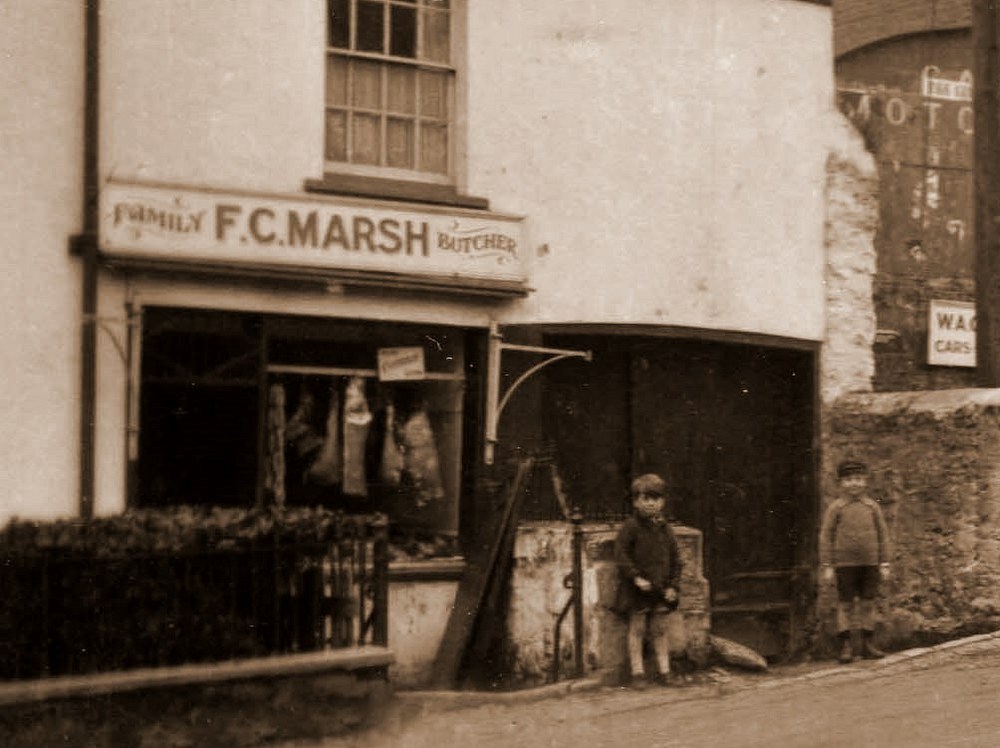
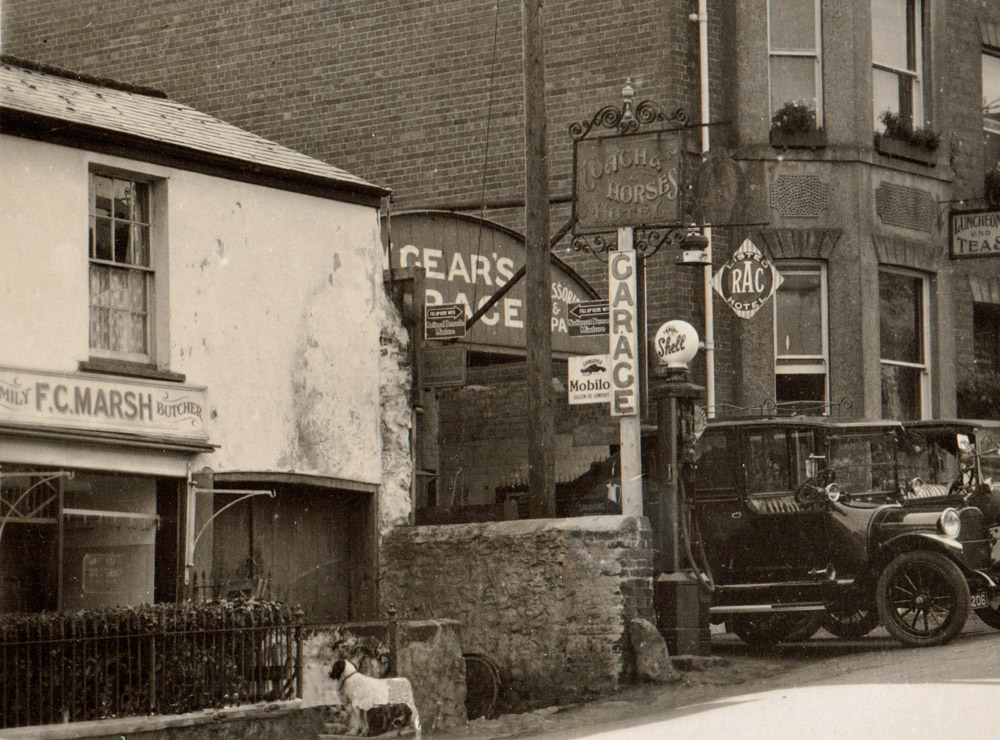
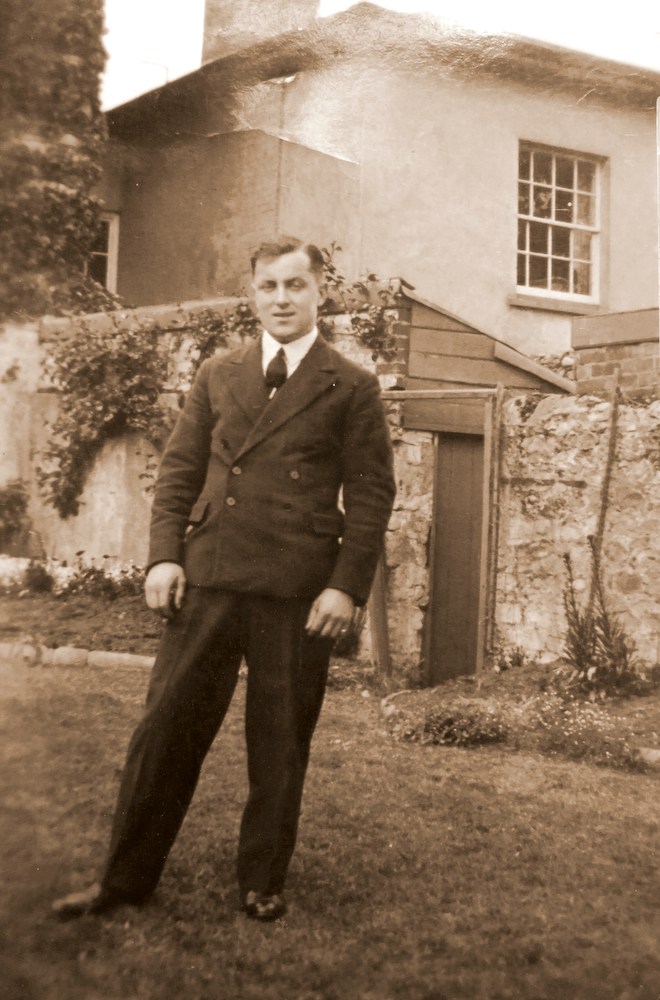
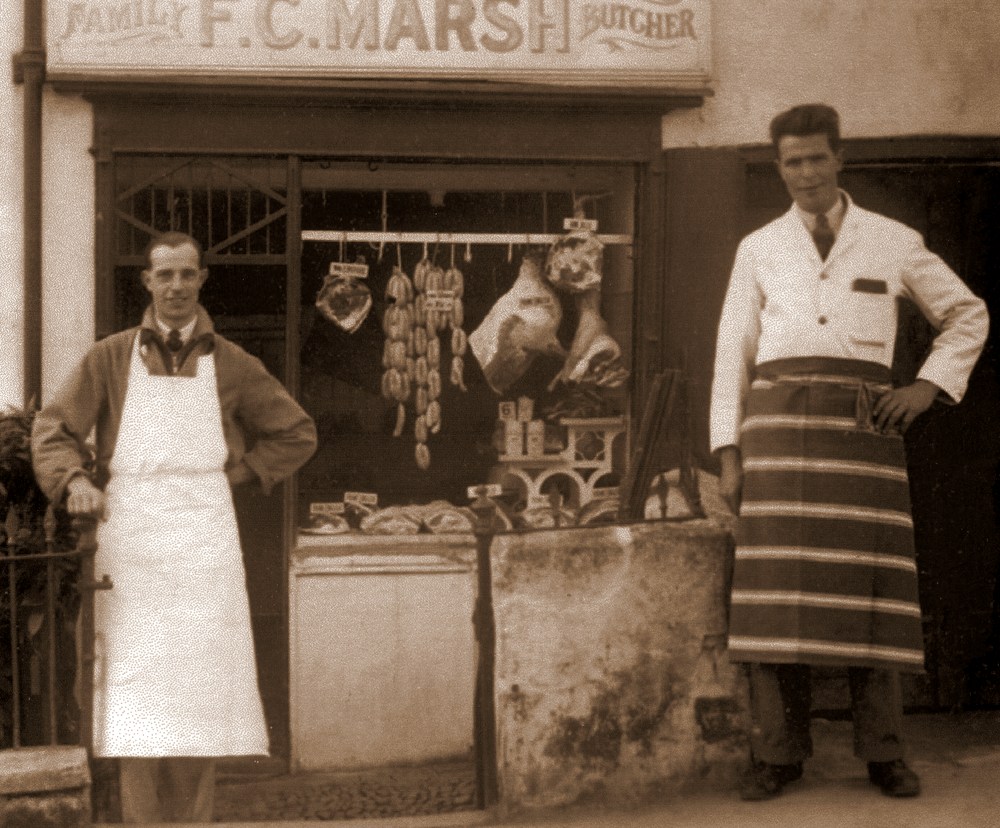
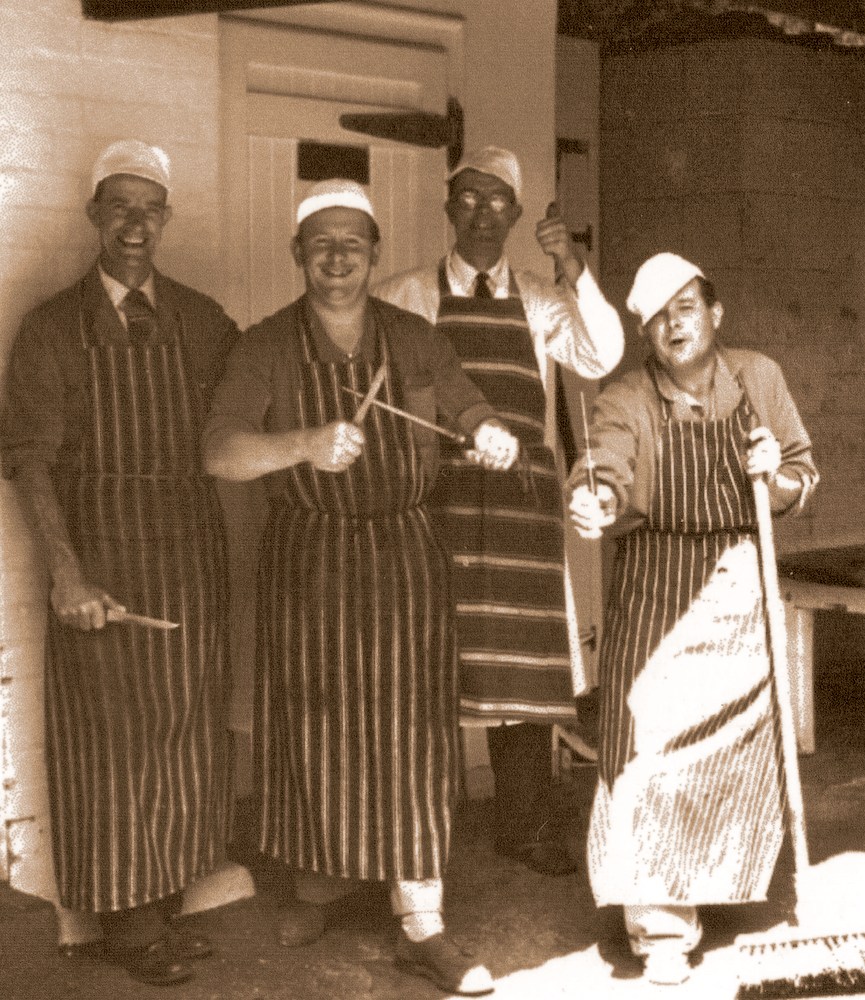
Reub Frampton was a Charmouth village butcher and my father-in-law. He came to Charmouth in 1938 with his brother Ron when they bought the butchers shop next to the Coach & Horses from Cecil Marsh and his mother. Between them, the brothers ran this shop until 1961 when they sold the business on to Bright. It is strange that Pavey, who knew both Framptons very well, records the occupant of "Winton House' as Bright but makes no reference to the Framptons who lived and worked there during the previous twenty three years, or indeed to the Marshes who preceded them. However, Pavey does give some interesting details of the shop and of "Winton House' of which the shop is a part. He supports the claims of past owners that the house and "Beech House' immediately to its east was once the parsonage before the old rectory, south of the Church, was built in 1835. Apparently, one John Hodges added the shop and the family lived over it and in a room over outbuildings in the yard, with access being gained via external stone steps. It is probable that this latter structure still exists. From Pavey's account it would appear that butchers operated from these premises for well over a hundred years.
The Frampton family were traditionally butchers. The brothers' grandfather was a butcher at Beaminster and a photograph from c.1909 appears in Gosling's "Beaminster', from the Towns and Villages of England series, in which their grandfather, Giles, can be seen standing outside the shop in the square with his two elder sons, Ernest and Charles and other staff. The brothers' father - also named Giles and also a butcher - was the third son of Giles of Beaminster. He had a successful business in Exeter until he died from pneumonia at the young age of 34. He had three sons Edgar Giles, Reuben Ernest and Ronald Charles. These sons took their second given names from their father and their Beaminster uncles. After the death of Giles, his widow and the three boys returned to her family home at Axminster.
All three sons eventually became butchers and Reub learned his trade at Stewarts in Axminster in the days when use of a poleaxe was an important skill. Reuben then went to work for Harris in Lyme Regis and it was during this period that Ron was working for Marsh at Charmouth. It was at this time that Ron learned of the Marshes intention to sell and he and Reub together bought the business in 1938. Although qualified butchers, the brothers had little experience of buying and Reub confessed that his approach in the early days was to follow his old boss from Lyme and make one further bid after Harris dropped out, much to the latter's irritation, but as Reub said, he'd got to learn.
Whilst at Lyme, Reuben had married Aileen Rough whose parents had lived in Charmouth from around the end of the 19 th century, firstly at "Bow House', then at "Wood Farm' and finally at "Hogchester'. Aileen's father, Thomas John Frazer Kemp Rough, was a colourful character. When single and working as a gardener, he lived with his parents at "Rose Cottage', which was next to the "Royal Oak' but is now a part of it and has been for many years. Later on, he worked as a dairyman/tenant farmer and moved from farm to farm over the years.
Tom married Zelia Nina, the fourth daughter of Lambert Rendell and his wife Charlotte. In his early adult years, it seems that Lambert had moved to Guernsey and it was there that he met and married Charlotte and his children were bom. He later returned to England bringing wife, children and cattle! The family moved from Devon to Dorset where they also lived for a time at "Wood Farm'.
Tom's father was Thomas Frazer Rough who was bom in Edinburgh and came to Devon to take up a post as a farm bailiff. Later, he too lived in Charmouth and took Catherine Barnes, a widow and tenant of the "Royal Oak', as a second wife after the death of his first wife, Ellen. Just as the brothers were beginning to feel their feet in their business at Charmouth, WW II broke out and things became difficult for everyone. One of the problems for retailers derived from the otherw ise excellent rationing arrangements. The amount of meat that a butcher could sell was largely a fiinction of customer numbers, and bore only a slender relationship to customer wealth and business enterprise. An indication of how small the ration was is reflected in the fact that, although many in the village were not at all well off and could not afford a great deal anyway, most could manage to buy their weekly allocation of meat in full. I think the meat ration was about 1/- to l/6d (5 to 8p) worth per week per person in the early forties.
Rationing presented problems to all, including the much-maligned local officials who had to administer the process. It would seem that the poor guy with responsibilities for tradesmen's retail sales in the Charmouth area was based in Bridport. It was his responsibility to balance coupons against sales and it was not always easy to justify any increases in trade. On a couple of occasions in the early days when he was in a pickle, Ron was able to help him sort out his problems and for that the man was very grateful. It was during one of their chats that Ron heard that a visit from the food inspector was imminent. It was coincident with the receipt of this intelligence that Reub decided that storage facilities for stock were overcrowded and that some additional space must be found - and quickly. There were two pig carcasses in particular for which he was especially keen to make alternative storage arrangements.
Now the staircase in "Winton House' is not only very narrow but it is also extremely steep and it has a one hundred and eighty degree turn without the benefit of a proper half landing. I do not know how big the carcasses were but it couldn't have been easy to get them to the top of the stairs. Nevertheless, up the stairs they went, though presumably few were ever able to appreciate the surreal spectacle of two pigs lying side by side in the double bed of the spare room. Aileen was not amused.
Both brothers were very good-natured and popular villagers. Largely because he could drive, Ron took responsibility for meat deliveries to customers, not only in Charmouth but also to farmers and others out in the Marshwood Vale, whilst Reub served in the shop, which was one small room, as described earlier, at the western end of "Winton House'. Aileen, contributed in many ways which included answering the phone (Charmouth 16), rendering dripping on the kitchen stove, preparing massive fry-ups and brewing tea. To those in the house, who, apart from Aileen, included their two daughters Heather and June, the sounds coming from the shop were commonly those of peals of laughter. Reub was basically a kind and courteous man and treated his customers according to their nature and their station. Having said that, he was prepared to defend his comer if necessary. On one occasion the rector, the Rev. Ovens at the time, remarked humorously, that he had not seen Reub in Church recently. Reub explained, respectfully and equally affably, that When you start giving me your custom, I'll be sure to give you mine'. In talking of his experiences, he once told me that, by and large, those that had least were those who paid promptest, whilst the better off thought he could wait until the end of the month - and not necessarily the current one. One or two were so well off, they seldom paid at all!
On occasions during the war, Reub would visit a local farm of an evening and return quite late, certainly after dark, with an apparently heavy bag over his shoulder. That these visits occurred at night, in the dark, was no doubt a consequence of the fact that his daylight hours were fully occupied. These occasional sorties were purely in devotion to his duty to his
customers - and the need to remain solvent! Not everyone in the village saw things in quite the same light and. one way or another, an occasion arose for PC Tucker (or possibly Habgood) to have a quiet word with Reub and to suggest that, when out for an evening stroll, why always take the same old, boring route home? Reub took the hint and enjoyed walking around bits of the parish that otherwise would have been quite strange to him. On other occasions, Home Guard activities sometimes provided opportunities for visiting snares in the surrounding countryside when he could collect any rabbits and reset them. Rabbits were one of the few legitimate sources of meat that were not rationed during the war. Ron told me that the private school at Monkton Wyld had a regular weekly order for two-dozen rabbits. The pupils and staff ate the legs and the Si a mese cats, of which there were several, ate the rest.
It was not until the mid-fifties that I got to know my future father-in- law and his brother at all well and by that time Keith Grinter and Bill Elliott were also working with them. The photograph showing all four, playfully brandishing knives, was taken outside the cold store behind the shop in 1958. Bill appears to be especially playful!
After the sale of their business in 1961, Ron continued to live with his family at "Ronsden' in Lower Sea Lane and Reub left to live in Poole where he and Aileen were nearer to Heather and June who were both married by then and living in the east of the county. Later, Ron left to move to Swanage by which time their children had also married and moved out of the village.